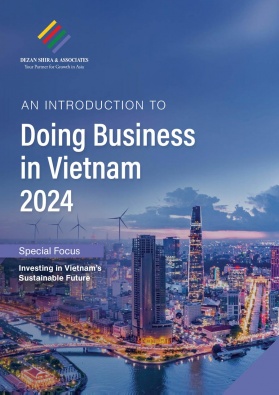January 14 Heralds End of Economic Needs Test for CPTPP Members
For years Vietnam’s Economic Needs Test has created a barrier to entry for foreign retail firms looking to establish a presence in the Southeast Asian nation. This is set to change next week for CPTPP member states. Here are the details.
January 14 of this year marks the fifth anniversary of the Comprehensive and Progressive Trans-Pacific Partnership (CPTPP) agreement. In its relatively short life span, this agreement has seen a trade boom between member states. January 14, however, is not just a key milestone, but it will also see a series of restrictions lifted for foreign firms entering the Vietnam market.
One of those restrictions is Vietnam’s Economic Needs Test (ENT). The ENT, at its core, functions as a means to manage the impact of foreign retail firms establishing themselves in the country. This has historically added an extra barrier to market entry requiring additional paperwork and processing time.
As a result, on January 14, when this requirement is lifted per the CPTPP, market access for retail firms from countries party to the agreement, should find establishing a retail presence in Vietnam, faster and easier.
What is the ENT?
Vietnam’s Economic Needs Test (ENT) is outlined in Decree 09/2018/ND-CP. It is an assessment performed by the provincial-level People’s Committee to determine the impact of a new retail store on a local retail market.
This is required of all retail outlets except for:
- The first store in the country;
- Retail outlets to be located in shopping malls; or
- Convenience stores and mini-supermarkets.
The test assesses several key criteria. They are:
- The size of the retail market in which the new outlet will be located;
- How many retail outlets there already are in the area;
- How the new outlet might impact existing businesses, including traditional markets;
- How the new outlet might impact traffic in the area, the environment, fire safety regulations; and
- The contribution the new outlet will have to the: local economy including jobs to be created, modernization of the retail sector, living conditions in the area, and the state budget.
This criteria is then assessed and the project is either approved or denied.
Impacts
This change could make a substantial difference to the expansion plans of other CPTPP member states–Australia, Brunei Darussalam, Canada, Chile, Japan, Malaysia, Mexico, Peru, New Zealand, and Singapore–in that it may open up real estate options for retailers from these countries.
Clothing retailers Muji and Uniqlo from Japan, for example, have opened stores in both Ho Chi Minh City and Hanoi. They are also currently planning to expand even further though to date most of their stores have been in shopping centres avoiding the need to complete ENTs. Removing the ENT requirement may make stand-alone stores for these big brands a more attractive option.
On that note, Vietnam’s cities are densely populated and space for shopping malls is relatively limited. This pushes up rents making opening new retail outlets more expensive. Not only that, shopping malls are still a relatively new phenomenon and many Vietnamese still prefer street shopping. In this light, curb-side outlets may be able to pick up customers that shopping malls can’t.
The ENT for UK and EU firms
Note that several other agreements will also see the removal of the ENT requirement for member states in the near future.
EVFTA
As part of the European Union-Vietnam Free Trade Agreement (EVFTA) the economic needs test will no longer be required for EU member states five years after the agreement comes into effect. The agreement went into force August 1 2020 and therefore the ENT will no longer be necessary from August of next year.
UKVFTA
Like the EVFTA, the United KIngdom-Vietnam Free Trade Agreement (UKVFTA), also has a clause that stipulates the ENT will no longer be necessary five years after the agreement comes into effect. This should see the ENT requirement for UK firms removed from the start of 2026.
That said, the UK is currently working towards joining the CPTPP. This could see the ENT for UK firms removed sooner, however, the UK’s accession to the CPTPP is still ongoing.
What’s next?
Firms that have been hesitant to enter the Vietnam market should note that this is a sign that Vietnam is broadly working towards making market access easier.
Also, as the country continues to become more globally integrated, not only will more red tape be cut, but the economy should continue to grow and with it Vietnam’s consumer class. The point is that not only is market access becoming easier for retailers but the benefits of opening a retail store in Vietnam are too.
For more advice and guidance on accessing Vietnam’s consumer class, contact the business advisory experts at Dezan Shira and Associates.
About Us
Vietnam Briefing is published by Asia Briefing, a subsidiary of Dezan Shira & Associates. We produce material for foreign investors throughout Eurasia, including ASEAN, China, India, Indonesia, Russia & the Silk Road. For editorial matters please contact us here and for a complimentary subscription to our products, please click here.
Dezan Shira & Associates provide business intelligence, due diligence, legal, tax and advisory services throughout the Vietnam and the Asian region. We maintain offices in Hanoi and Ho Chi Minh City, as well as throughout China, South-East Asia, India, and Russia. For assistance with investments into Vietnam please contact us at vietnam@dezshira.com or visit us at www.dezshira.com
- Previous Article Investment Opportunities in Refrigerated Transportation in Vietnam
- Next Article Draft Rooftop Solar Decree Overview





